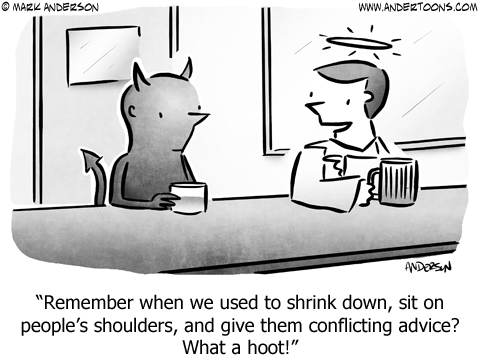One thing we’ve learned from the diet crazes since the 1980s is that every single thing has been alternately touted as healthy or poison. No-fat, carb-heavy. Scratch that, no-carb, fat doesn’t matter. Scratch that, it’s only about low-cal. Scratch that, whole-30 and don’t track calories. Scratch that, fast for sixteen hours a day and do anything for the other eight.
Ask any person and they’re equally variable: Which thing worked for them, or didn’t, or worked for a while but it wasn’t sustainable.
So there isn’t an objective answer to the question: What is the best diet?
The right question is: Given that any of this could work, What works best for me?
This is also how start-up advice works. For every clear example that proves “X is right,” there’s another equally compelling story of success where the mantra was “X is wrong.”
So the question is: Which advice is right for me?
In diets, half the answer is physiological — how your body reacts. The analog in startups is: What is right for this company, in this market, with these competitors, with these customers, at this price-point, with this business model, with this team, with their goals. Often the answer is different from what made sense for Steve Jobs or Bill Gates or Mark Zuckerberg, even though those are the stories we constantly hear.
In diets, the other half is sustainability — can you keep this up for a meaningful amount of time? It’s fine to say social media could be the key to your marketing success, but if you think Twitter is insipid and Facebook is fake and Instagram is not serious, will you really be successful if you force yourself to post things? It’s fine to say user interface design is critical, but thousands of successful companies have crappy design, so if you’re not a designer and don’t care to invest in one, you should instead be asking what made those companies successful in spite of poor design.
Not only is there no formula that will always work, there’s not even a clear way of understanding whether a certain piece of advice is right for you. As in the above: Should you suck it up and get competent at Twittering or listen to your gut that says “this isn’t the path for me?”
There are two ways to figure out whether advice is appropriate for you.
First, realize that advice always comes with context. The rule of thumb is that advisors are always giving advice to themselves. Meaning: With their personal goals, their world-view, their experience, the markets and products and customers and competitors that they’ve experienced, they can probably give some great advice. Outside of that, who knows. So ask yourself: Does this person giving the advice align on all those dimensions with me? If so, this could be sage wisdom, even if you don’t like the message. If not, you can either ignore it completely (focus!) or listen with a filter.
Second, your gut often knows the answer. I know you don’t want the answer to be “feelings,” but sometimes feelings are wiser than thoughts. In a world where both “X” and “Not-X” are convincingly peddled as The One True Way, you might need something outside of pure logic to resolve the path. If you find yourself vigorously agreeing with some new idea, that might be all the evidence you need.
But first ask yourself: Do I like this because it’s justifying some behavior that I know is wrong, or because it really is ground truth for me? For example, if you inherently dislike social media, of course you can find advice telling you how social media isn’t important, but do you enjoy that idea because it feels correct deep down that social media is a farce, or do you enjoy that idea because it’s an excuse to avoid the truth that social media is critical for digital marketing. If you ask yourself, even though these are feelings, the answer will often be clear.
Most of all, pay attention to advice when you have an immediate aversion. Usually, your first reaction is correct; you have a certain world-view, and since many world-views are valid, you should select things which allow you to lean into the one that gives you energy and is consistent with the rest of your activities.
But sometimes, that contradictory message is a moment to learn and grow. Sometimes, you were wrong, and you need to alter your world-view. This is an opportunity; don’t waste it!
As you accumulate a set of principles that you have a lot of energy for, you throw yourself into it and run it to the extreme. Doing that is perhaps one of the truly universal rules of success — that you are “all in.” Applying an extreme amount of energy is more important than exactly which path you’re taking.
Applying maximum energy doesn’t mean working yourself to death. It means being all-in, and being thoughtful and specific about what you’re all-in about.
This is what healthy perseverance looks like.

One response to “Finding the right advice”
great article!